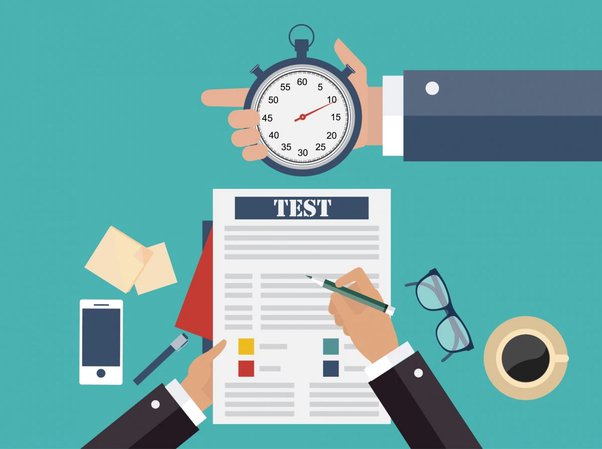Millions of people around the world have insomnia, a sleep condition that makes it hard to fall asleep, stay asleep, or get restful sleep. This makes it hard to function and be happy during the day. Stress, lifestyle, and sleep habits are all important environmental factors that can lead to insomnia. However, new study shows that genes also play a big role in determining if someone is more likely to develop insomnia. Understanding the complex interactions between genetic factors and insomnia will not only help us figure out what causes it, but it could also lead to more personalized ways of treating it. This study goes into detail about how genetics can make people more likely to have insomnia and what that means for diagnosing, preventing, and treating the condition.
Getting to the bottom of insomnia’s genetics
There may be a genetic component to insomnia because it tends to run in families. Twin studies have shown strong evidence that insomnia is genetic, with estimates of heritability running from 30% to 59%. These results show that genetic factors play a big role in explaining why some people are more or less likely to experience insomnia.
Genes that might be candidates and genome-wide association studies
Through candidate gene studies and genome-wide association studies (GWAS), researchers have found a number of genes that may be linked to sleepiness. These genes control many bodily processes, such as neurotransmitters, circadian rhythms, and how the body reacts to stress.
One of these genes is PER2, which is very important for the circadian clock. Differences or mutations in the PER2 gene have been linked to changes in sleep-wake cycles and a higher risk of insomnia. In the same way, differences in genes that code for neurotransmitter receptors like GABA and serotonin receptors have been linked to different types of sleeplessness and problems with controlling sleep.
GWAS is a strong tool for finding genetic variants linked to complex traits. It has also given us useful information about the genetics of insomnia. These studies have found several genetic loci that are linked to insomnia symptoms and traits that are connected to them. This shows that the disorder is polygenic.
Polygenic Risk Scores and Models for Prediction
Polygenic risk scores (PRS) use information from many genetic variants to figure out how likely it is that a person will have a certain trait or disease. When it comes to insomnia, PRS drawn from GWAS data can help divide people into groups based on how likely they are to have the disorder because of their genes.
Using PRS for predictive modeling could help find people who are very likely to develop insomnia, allowing early intervention and personalized methods for prevention. Clinicians can target modifiable risk factors and encourage good sleep habits in people who are more likely to develop the condition by using genetic information.
Genes and Their Environments
Genes are a big part of why some people are more likely to have insomnia, but they don’t work alone. Gene-environment interactions, in which genetic predisposition interacts with external factors, make the cause of insomnia more complicated.
Stress, a strong environmental factor, works with genetic predisposition to make sleeplessness symptoms worse. People with certain genetic variations linked to stress sensitivity may be more likely to get insomnia when they are going through stressful events in their lives. It is important to understand these gene-environment interactions in order to create tailored treatments for insomnia that target both genetic and environmental causes.
What this means for diagnosis and treatment
The discovery that sleeplessness is linked to genes has huge effects on how it is diagnosed and treated. Genetic factors may be useful for finding different types of insomnia and figuring out how well a treatment will work.
Using genetic information to lead precision medicine approaches could help improve the results of treating insomnia. Pharmacogenomics is the study of how differences in genes affect how drugs work. Using a person’s genetic background to find the best and safest medicines for them can be very helpful. For instance, genetic tests could help doctors choose the right hypnotic drugs or figure out how to gradually increase dosages to get the best therapeutic benefits with the fewest side effects.
Non-drug treatments, like cognitive-behavioral therapy for insomnia (CBT-I), can also be made to fit the genetic background of each person. Personalized CBT-I protocols may improve treatment effectiveness and long-term adherence by focusing on underlying processes linked to insomnia pathogenesis.
Thoughts on Ethics and Plans for the Future
As our knowledge of the genetics of insomnia grows, it is important to talk about the moral issues that come up with genetic tests and personalized treatments. When using precision medicine to treat insomnia, it is very important to protect privacy, get informed permission, and make sure that everyone has equal access to genetic services.
Researchers should focus on figuring out the biological processes that connect genetic variants to different types of insomnia and coming up with new ways to treat them in the future. It might be possible to figure out what causes sleeplessness and improve personalized medicine in sleep health through collaborative projects that combine multi-omics data, such as genomics, transcriptomics, and epigenomics.
In conclusion
More and more people are realizing that genetics can make someone more likely to have insomnia. This shows how important it is to use a combination of genetic and environmental factors to diagnose and treat insomnia. Finding out more about the genes that cause insomnia will allow us to create personalized treatments that can target the underlying causes and help people who suffer from this common sleep problem sleep better. With more study and new ideas, we can work toward a time when genetically-tailored treatments for insomnia will make life easier for everyone and help everyone get a good night’s sleep.





